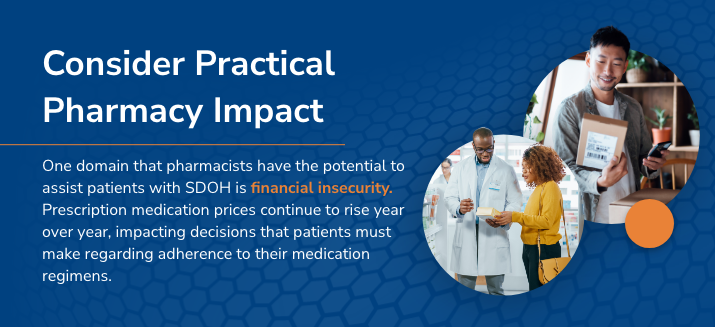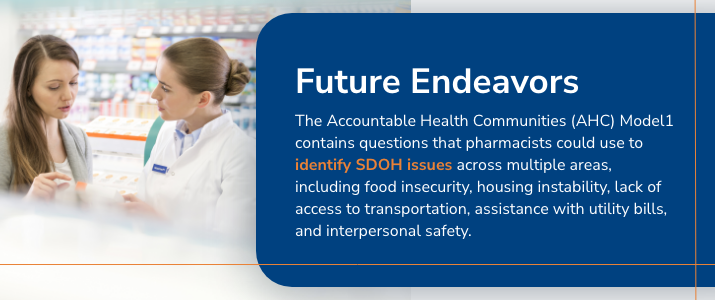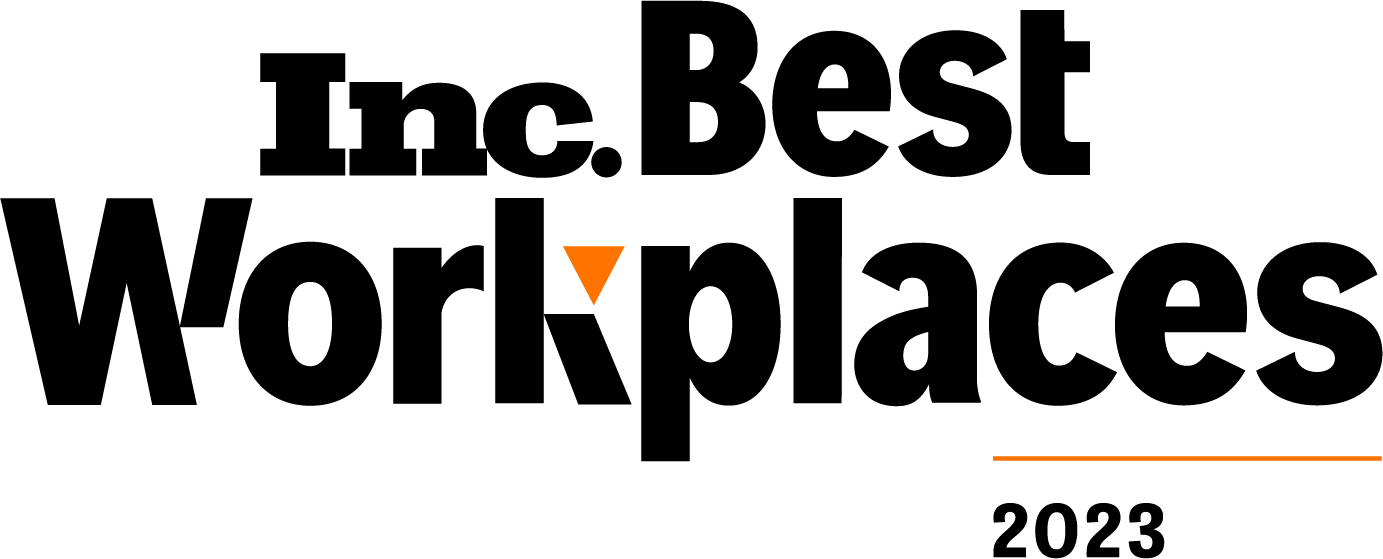Crucial Community Pharmacy Practice Changes Necessary for SDOH Success
Let’s have a conversation
Social determinants, or drivers, of health (SDOH) were brought to the forefront of healthcare news during the COVID-19 pandemic. The virus disproportionately affected individuals with lower socioeconomic status and certain racial backgrounds, with the largest impact observed within inner-city, low-income housing across the United States. Healthcare experts believe that SDOH can account for as much as 90% of health outcomes, highlighting the need to address SDOH in our communities and innovatively reimagine care delivery.

Let’s Reimagine Care Delivery Through Pharmacies
The pandemic was a catalyst for pharmacists to participate in patient-facing care on a global stage. Members of the profession were able to provide COVID-19 test administration, vaccinations and patient education surrounding the virus. Pharmacies did not close their doors during any phase of the pandemic, unlike other businesses and medical offices. Hospitals and retail pharmacies remained operational to provide access to healthcare information and life-sustaining medications while the rest of the world was on pause.
In a perfect world, pharmacists would be able to balance medication dispensing and clinical services optimization for all patients at their practice sites. Addressing SDOH would be effortlessly placed into current workflow without disruptions in essential responsibilities and retail chain mandated vaccination quotas. The reality of the situation is that community pharmacists, often working understaffed with limited support resources, rarely have the time to complete their basic responsibilities in each shift. Many pharmacists stay after their required shifts or arrive to work hours before the pharmacy opens to complete backlogged medication dispensing from the day prior. As the world’s most accessible healthcare providers, pharmacists are often tasked to assist with patient care gap closure. Fully adopting the role of SDOH envoys is not possible under the current community pharmacy operational model. However, pharmacists can be empowered to address aspects of SDOH related to medication compliance.

Consider Practical Pharmacy Impact
One domain that pharmacists have the potential to intervene and assist patients with SDOH is financial insecurity. Prescription medication prices continue to rise year over year, impacting decisions that patients must make regarding adherence to their medication regimens. Lack of adherence can lead to decreased quality of life and increased healthcare dollar spend due to emergency room visits and hospital admissions. Upon prescription receipt, pharmacists can review applicable insurance coverage and patient copay fees to evaluate the patient’s true out of pocket expense. Pharmacists are encouraged to work as part of the patient’s healthcare team and alert prescribers to high-cost medications. Less costly therapeutic alternatives can be suggested to alleviate patients’ concerns involving pharmaceutical cost while improving healthcare outcomes.
Another common social determinant that can affect patients during a pharmacy encounter is transportation. Many patients located within urban areas of the country lack access to dependable transportation or the means to pay for this service. Rural access patients could have distances too far to travel to pick up their prescriptions on a consistent basis. Pharmacists have the capacity to check refill histories on their patients to identify compliance gaps in the current workflow. If refill disparities exist, the pharmacy has several options to consider. The pharmacist could explore the service of mail order prescription refills via the patient’s prescription drug coverage provider. However, the community pharmacy location would lose revenue from outsourced prescription fills. Many retail pharmacies offer prescription home delivery services for their patients. This option would be beneficial to both the patient and pharmacy if the service exists within the practice. Pharmacies could consider reduced or eliminated delivery charges for identified patients to further ensure medication adherence.

Future Endeavors
In the traditional retail pharmacy business model, pharmacists could use the Accountable Health Communities (AHC) Model1 developed by CMS for patient screening. This model contains questions that pharmacists could use to identify SDOH issues across multiple areas, including food insecurity, housing instability, lack of access to transportation, assistance with utility bills and interpersonal safety. Outpatient provider offices have used this tool in practice with mixed success rates, largely due to a lack of dedicated staff support. Pharmacists are not traditionally compensated for cognitive services, as the practice does not charge a fee-for-service (FFS) to patients receiving clinical information. Additional staffing, compensation and private counseling space would be essential to a pharmacy’s success in conducting SDOH screenings.

Redefining the Role of a Pharmacist from Medication Dispenser to Health and Wellness Ambassador
The public perception of pharmacists’ role in healthcare is elevated above a dispensing role at this time. Pharmacists have demonstrated the ability to do more than fill prescription medications and provide recommendations for over the counter (OTC) medications. The profession has the chance to redefine its role and shift once again from practitioners behind the counter to healthcare and wellness ambassadors. Increased effort is required to effectively address SDOH for our patients and the healthcare system. Can pharmacists effectively become innovative leaders in SDOH? Developing strong communication and information exchange with patients and their providers coupled with appropriate staffing resources in the pharmacy would be vital for success. Pharmacists can be powerful healthcare resources for addressing existing healthcare gaps. A rework of the industry business model to prioritize patient care and wellbeing would be a win for the profession and the public.

How ProspHire Can Help
At ProspHire, we want to help you and your members receive the highest quality of care. Our team’s extensive healthcare industry knowledge and commitment to valuable results can help you and your team optimize strategies to enhance healthcare delivery. Aligning analysis, insights and implementation regarding Social Determinants of Health with ProspHire’s expert team can help you address patient care as a whole. Our team is ready to have a conversation with you and understand your challenges experienced with SDOH application. Connect with us today.
ProspHire
216 Blvd of the Allies, Sixth Floor
Pittsburgh, PA 15222
412.391.1100
prosper@prosphire.com


© 2025 ProspHire, LLC. All Rights Reserved / Terms of Use / Privacy Policy







